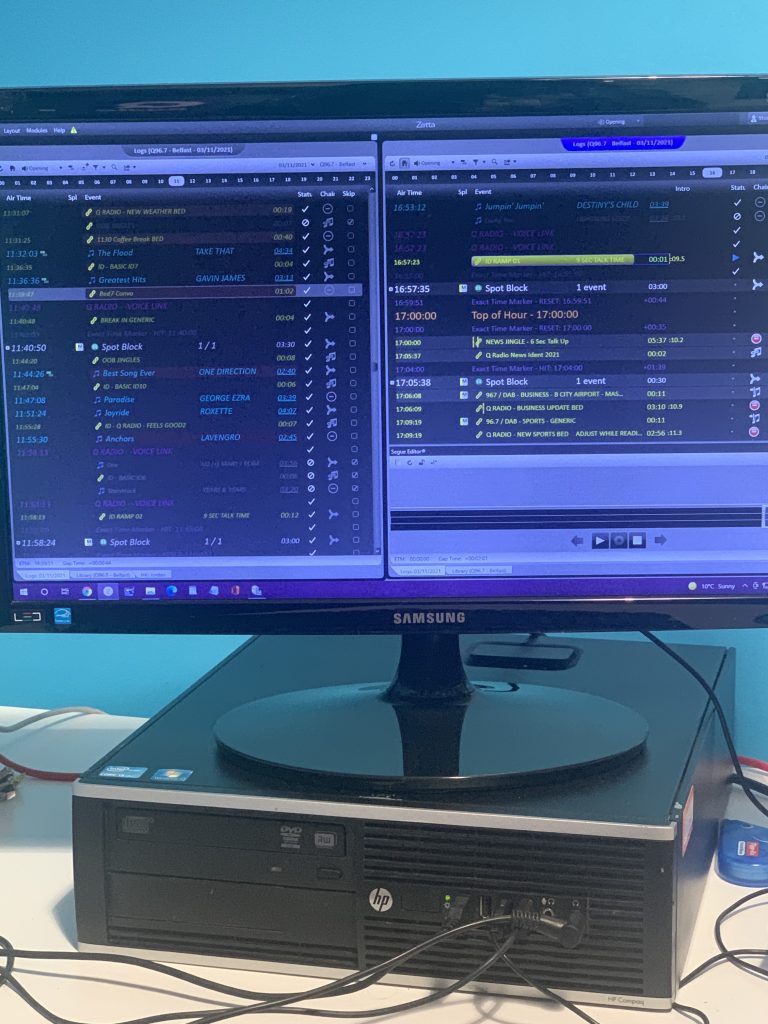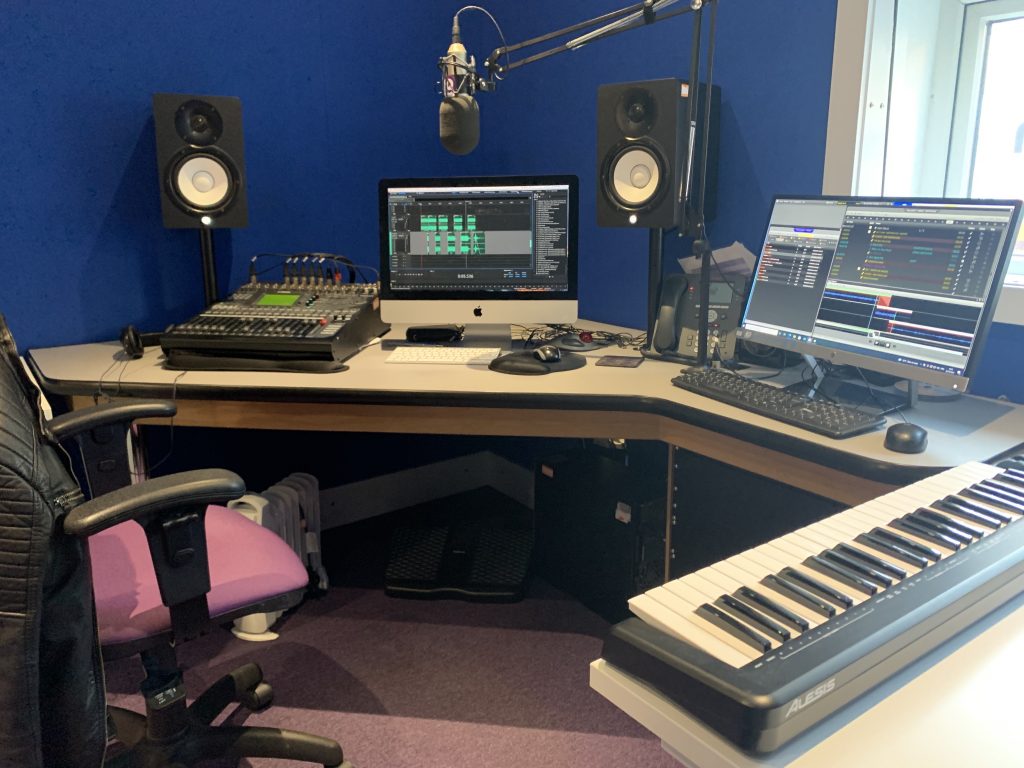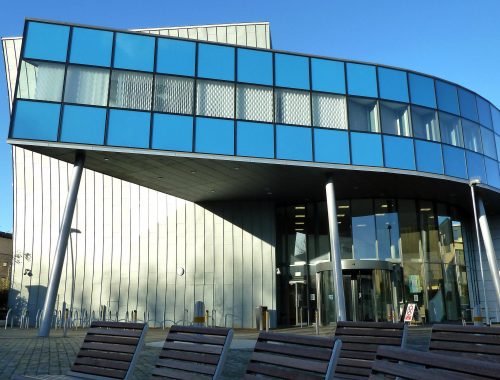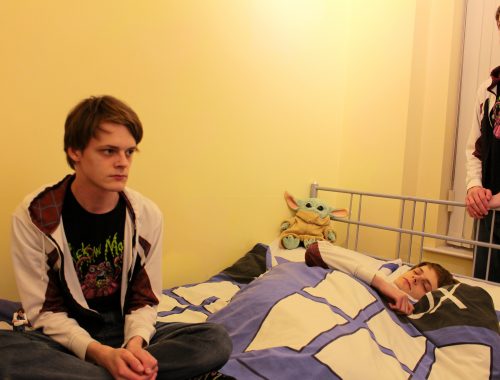Heading Back to the Workplace After Lockdown
Everyone has their own partialities to working at home or being in the office and there’s no doubt that there have been challenges arising as we’ve been heading back into work. I was fortunate to have been classified as a key worker throughout the pandemic when others were left with no work. Since coming back to university in September, I have taken on a new venture as part of my Work Based Learning module.

I am ecstatic to be completing a placement in Station Imaging and Branding with Q Radio this year as part of one my modules. Work placements are useful as they “give you the chance to consider which aspects of work and working culture you find most stimulating and enjoyable” and “which aspects are potentially problematic” (Fanthome, 2004). As part of this blog, I will be reflecting on my experiences using Gibbs’ Reflective model. In his book, he states: “without reflecting on this experience it may quickly be forgotten, or its learning potential lost” (Gibbs, 2013).
On my first day in the studios, Errol, the Programme Manager and Head of Music, introduced me to key staff. They’re still working with skeleton staff due to the pandemic, but I met presenters Yazz, Steve and Jordan. They showed me how equipment such as voice tracking cameras worked, which faders and buttons do what, and the basic functions of the Zetta playout system. It was quite nerve-wracking and intimidating being met with all of this professional equipment, never mind meeting the voices I’ve listened to on the radio for years! I was welcomed into their studios with open arms, and everyone was excited to get me on board. The level of expertise that the presenters displayed inspired me that they are more than capable to guide me over the next few months. I’m excited to further my knowledge on their systems as the weeks go on and ensured them that I’m open to giving anything and everything a try!

In week two of my placement, I met Carl, who is the Head of Station Sound, and presenters Ibe and Connor. Ibe invited me into the studio with him to assist with show preparation and learn how phone call competitions are recorded, edited and put out on air; Ibe records the call off-air while music is playing, performs a short link before editing the call while another song plays, then it’s out on air! I could feel my heart racing as I watched him jumping from recording to editing to talking on air all within a few short minutes – I suppose that’s how it is when you’re live on air (Glassman, 2014). Ibe completed the task with such ease while chatting to me simultaneously, showing off his professionalism and extreme time management skills (something I’m hoping will rub off on me!).
Connor let me sit in on a Zoom interview with local singer-songwriter, Cormac Neeson, and taught me about interview skills. He showed me the setup for catching the best quality audio over Zoom and in the studio, and the basics of Adobe Audition. Audition is a DAW that I wasn’t familiar with before coming to Q, but I hope to become proficient in it by the end of my time there.

Carl has acted as my mentor at Q so far. He has taken me under his wing and is showing me all the tricks of the trade. He started by giving me old promotions that he had created to see if I could re-create his sound. He provides me with extremely detailed and helpful feedback each and every week and has introduced me to a handful of new plug-ins such as the Waves plug-ins. I ended up purchasing the gold bundle of Waves plug-ins while they were on offer, but we have specifically looked at Truverb, L1, C4 and Audiotrack.
There was one week in particular where Carl was unable to come into the studios due to personal reasons, but he made sure to still provide me with feedback over email and through videos. It’s lovely to be receiving such encouraging and thorough feedback from your mentor, and as Gibbs says: “Video recordings can provide a powerful tool to aid reflection on experience” (Gibbs, 2013). One of the videos that Carl provided for me was of an EQ for a voice where he compared what setting I had used in comparison to what he had used. The video was an excellent help because I was therefore able to go back over it and identify the specific frequencies of the voice that Carl was attenuating or boosting and adjust my own accordingly.
I have spent a lot of time over the past eight to nine weeks perfecting my editing skills but definitely have a long way to go. Ofcom conducted a study into Diversity and Equality in Radio in 2019 and found that 84% of the technical and engineering roles were more likely to be filled by men (Ofcom, 2019), and I would like to do my part to change that.
My questions now are: Is this the type of career that I’m interested in pursuing? Do I have the technical skills and personal attributes to succeed at this career and overcome the fears and stresses that come along with it?
I think the answer is yes, and I’m hoping that the remainder of my placement will confirm this for me. I need to continue building upon my confidence and assertiveness to truly show Q Radio who I am and what I’m capable of.
Bibliography:
Fanthome, C., 2004. Work Placements – A Survival Guide for Students. London: Macmillan Education, Limited, pp.15-18.
Graham, G., 2013. Learning by Doing: a guide to teaching and learning methods. 1st ed. [ebook] Oxford: Oxford Brookes University, pp.78-90. Available at: <https://shop.brookes.ac.uk/product-catalogue/oxford-centre-for-staff-learning-development/books-publications/ebooks/learning-by-doing-a-guide-to-teaching-and-learning-methods-by-graham-gibbs-ebook> [Accessed 20 October 2021].
Glassman, N., 2021. What You Need to Know About Audio Time Management for Radio. [online] Blogs.telosalliance.com. Available at: <https://blogs.telosalliance.com/audio-time-management-for-radio> [Accessed 12 November 2021].
Ofcom.org.uk. 2019. Diversity and equal opportunities in radio. [online] Available at:<https://www.ofcom.org.uk/__data/assets/pdf_file/0022/159421/diversity-in-radio-2019-report.pdf> [Accessed 20 October 2021].
Confidence is Key
You May Also Like

Roles Reversed
26 November 2021
Assumption – the Parent of Confusion
24 November 2021
